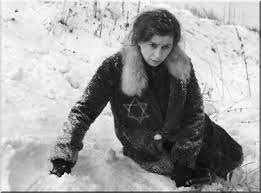Soothing with Pictures, Healing through Dreams: How Polish Feature Films After 1989 Shape Holocaust Memory?
Piotr Forecki, professor, Adam Mickiewicz University, Poznan, Poland
24 November 2025, Central, Cluj-Hub, 3rd Floor, 11-13.30
Screening of the film Ida, directed by Paweł Pawlikowski, 2013.
Introduction and Discussion.
25 November 2025, Central, 4th Floor, Seminar Room, 14-16.00
Lecture.
Screening of the film titled “Przy torze kolejowym” (By the Railroad), directed by Andrzej Brzozowski in 1963.
Discussion.
Lecture abstract
Between the end of World War II and the late 1980s, the Polish film industry produced nearly twenty films about the Holocaust that approached the topic within safe boundaries. These films, which were allowed to be shown, did not threaten the national community’s good feelings, did not address Poland’s version of antisemitism, and most importantly, avoided the sensitive topic of Polish society’s attitude toward Jewish persecution. Each film aligned with the existing historical policy, which either used this issue instrumentally or ignored it altogether. After 1989, both historiography and cinema began to explore topics that were previously forbidden, taboo, or distorted in official state narratives. With the end of political restrictions and the start of open public debate, Polish cinema initiated a delayed process of reckoning and revising Holocaust memories. But has this process truly taken place? Have Polish filmmakers genuinely worked to dismantle myths, fill in gaps, and correct distorted Polish memories of the Holocaust? This brief speech aims to examine how the memory of the Holocaust has been shaped in Polish feature films since 1989.
Bio
Piotr Forecki is a professor at Adam Mickiewicz University in Poznan. He has held scholarships at the United States Holocaust Memorial Museum in Washington, D.C., and the European Holocaust Research Infrastructure at Yad Vashem. His research focuses on how the Holocaust is portrayed in popular culture, especially in films and comics. He also studies anti-Jewish violence in post-war Polish history, antisemitic discourse, right-wing populism, and memory studies.



